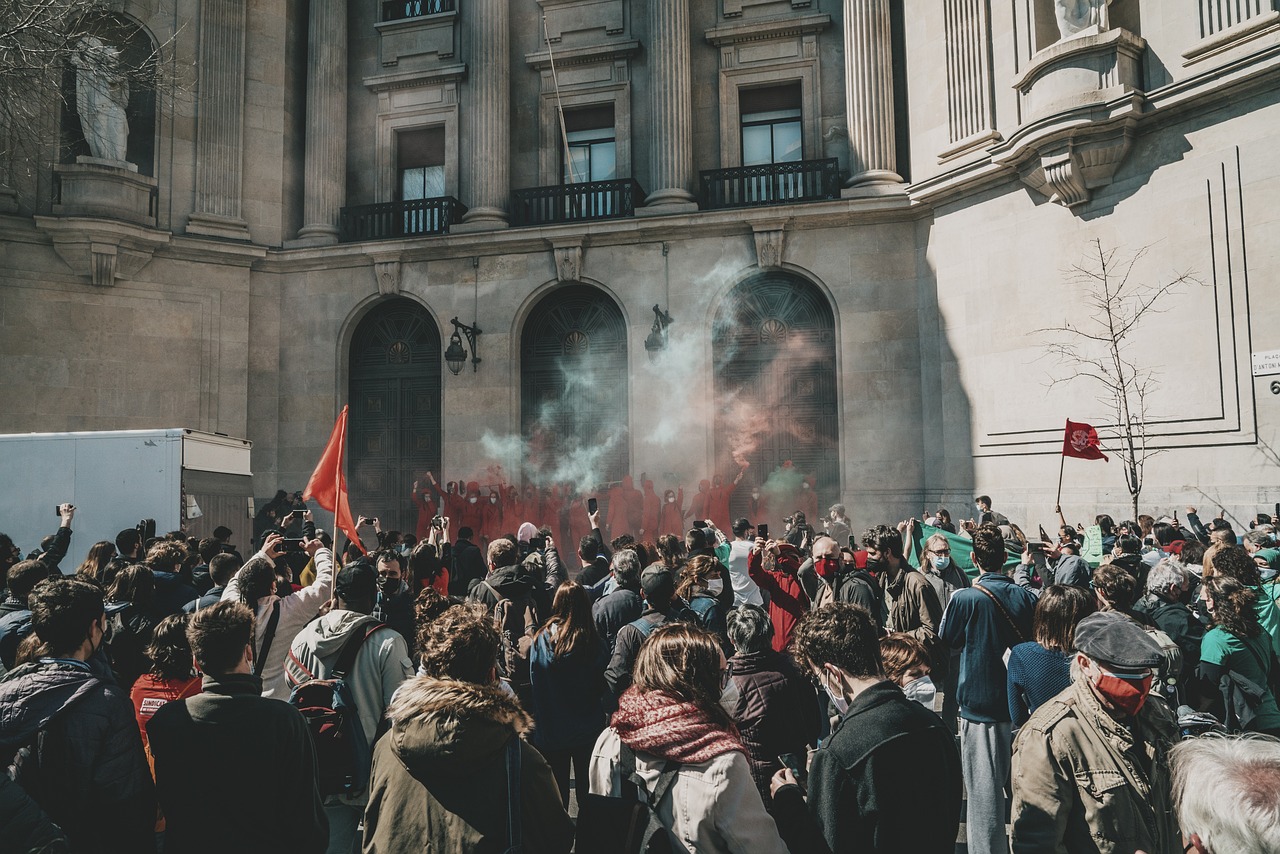Amsterdam has imposed a ban on all protests following violent attacks targeting Israeli football fans in the city. The clashes, which occurred both before and after a football match, left five people hospitalized and 62 detained. The Dutch authorities are investigating the incidents, which have sparked concerns over public safety and rising tensions linked to the ongoing Israel-Gaza conflict.
The attack on Israeli supporters took place during a high-profile match in Amsterdam, where a group of individuals reportedly targeted fans with physical violence. According to local police, the attackers were motivated by political sentiment surrounding the Israel-Hamas conflict, which has led to heightened tensions across Europe. The violence has drawn international attention, especially given the sensitivity surrounding the ongoing war in Gaza.
Details of the Attack
The confrontation unfolded both before the match, when Israeli football fans were harassed by a group of assailants, and after the final whistle, when the situation escalated into further violence. Police say the attackers were heavily involved in the disturbances, prompting a large-scale response from law enforcement. The five individuals who were hospitalized reportedly sustained serious injuries, although none of their conditions have been life-threatening.
In the wake of the violence, Dutch authorities acted swiftly, deploying a heavy police presence in the city to prevent any further escalation. A total of 62 people were arrested in connection with the disturbances, including those suspected of attacking the Israeli supporters. Amsterdam’s mayor, Femke Halsema, condemned the violence, describing it as “unacceptable” and announcing the protest ban to prevent further public disorder.
Protest Ban: A Response to Growing Tensions
In a bid to restore public order and prevent further violence, Amsterdam’s authorities announced a blanket ban on all protests. The decision was made in light of increasing political and social tensions in the Netherlands, particularly in connection with the Israel-Palestine conflict, which has seen growing demonstrations in major cities worldwide.
Authorities have cited concerns that further protests could escalate into violence, as emotions remain high due to the ongoing war in Gaza. The ban will remain in place for the immediate future, and the police have warned that they will not hesitate to break up any illegal gatherings.
Amsterdam’s decision to prohibit protests follows similar moves by other European cities, where authorities have taken stringent measures to curb protests that have turned violent in recent weeks. With large gatherings continuing to take place in response to the Gaza conflict, many European governments have struggled to balance the right to protest with the need to maintain public order.
Reactions to the Attack and Ban
The attack on Israeli fans has sparked outrage among Jewish organizations, who have expressed concerns about rising antisemitic violence in Europe. The Anti-Defamation League (ADL) and other advocacy groups have condemned the attacks, calling for stronger protection for Jewish communities and individuals, particularly in cities where tensions related to the Israel-Palestine conflict are running high.
Meanwhile, pro-Palestinian groups have expressed frustration over the protest ban, arguing that it limits their ability to demonstrate against Israel’s actions in Gaza. The right to protest is a fundamental pillar of democratic societies, and many activists argue that preventing protests undercuts citizens’ rights to express their opinions on critical international issues.
The situation is particularly sensitive given that both sides of the Israel-Palestine conflict are deeply entrenched in their positions. Amsterdam’s authorities now face the difficult task of addressing the growing concerns of both the Israeli and Palestinian communities while ensuring the safety of its citizens.
Impact on Amsterdam’s International Reputation
Amsterdam, known for its open-mindedness and tolerance, has prided itself on fostering an inclusive environment for people of all backgrounds. However, the recent violence and the controversial protest ban may tarnish the city’s reputation as a bastion of free expression and political activism.
The decision to suspend protests could have long-term implications for the city’s image, particularly in the eyes of international human rights organizations. Some experts worry that the heavy-handed approach could be seen as a form of censorship, undermining the Netherlands’ commitment to democratic freedoms.
At the same time, authorities argue that the ban is necessary to protect the safety of its citizens. As tensions around the Israel-Palestine issue continue to rise, many cities in Europe and beyond may need to grapple with similar challenges regarding protests and public order.
Looking Ahead: Navigating a Complex Situation
As the violence in Gaza continues to fuel protests and civil unrest around the world, cities like Amsterdam will likely face increasing pressure to balance the rights of individuals to protest with the need for public safety. The situation highlights the complex intersection of freedom of expression, public order, and security in times of geopolitical conflict.
With tensions still high, authorities in Amsterdam and other European capitals will need to find ways to address the root causes of unrest while ensuring that all citizens—regardless of their political beliefs—are able to feel safe and protected.
Conclusion
The recent violence against Israeli football fans in Amsterdam, followed by the imposition of a protest ban, underscores the growing tensions in Europe surrounding the Israel-Palestine conflict. While authorities are working to maintain public order and ensure the safety of all individuals, the decision to restrict protests has drawn both support and criticism. Moving forward, it will be essential for governments to find a balanced approach that respects both the right to protest and the need to maintain peace and security in times of heightened political unrest.
References:
- Dutch Ministry of Justice and Security – Press Statement on Public Safety Measures
Source: Government.nl - The Times of Israel – Violence Against Israeli Fans in Amsterdam
Source: Times of Israel - BBC News – Amsterdam’s Protest Ban Amid Rising Tensions
Source: BBC - Anti-Defamation League (ADL) – Rising Antisemitism in Europe
Source: ADL - Reuters – Dutch Authorities Arrest Dozens After Attacks on Israeli Fans
Source: Reuters



